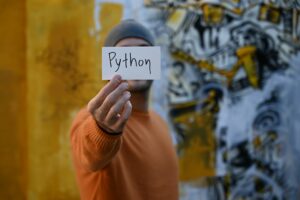Master Supervised Machine Learning: Regression & Classification with Coursera

Discover how Coursera’s Supervised Machine Learning course can help you build regression and classification models using Python to advance your AI skills.
Introduction to Supervised Machine Learning
In the rapidly evolving field of Artificial Intelligence (AI) and Machine Learning (ML), mastering supervised machine learning techniques is essential for building robust Python ML models. Coursera’s Supervised Machine Learning: Regression and Classification course offers a comprehensive pathway for learners to delve into these crucial aspects of ML.
Why Choose Coursera’s Supervised Machine Learning Course?
Coursera, in collaboration with DeepLearning.AI and Stanford Online, presents a specialization that is both beginner-friendly and highly effective in imparting the fundamentals of supervised learning. Taught by renowned instructor Andrew Ng, this course has garnered over 10,000 ratings with a perfect 5.0 score, reflecting its quality and impact.
Key Features:
- Structured Curriculum: The course spans three modules, offering a blend of theoretical knowledge and hands-on projects.
- Expert Instructors: Learn from industry leaders like Andrew Ng, whose expertise ensures a deep understanding of Python ML models.
- Flexible Learning: With an approximate completion time of 33 hours, learners can progress at their own pace.
Course Modules Breakdown
Week 1: Introduction to Machine Learning
Kickstart your journey with an overview of machine learning concepts, including:
– Supervised vs. Unsupervised Learning: Understand the differences and applications of each.
– Linear Regression Models: Learn to build and train models for prediction tasks using Python libraries like NumPy and scikit-learn.
– Gradient Descent: Master the optimization technique essential for training your Python ML models.
Week 2: Regression with Multiple Input Variables
Expand your regression skills by handling multiple features:
– Vectorization: Enhance your models’ efficiency and performance.
– Feature Scaling and Engineering: Improve model accuracy through advanced techniques.
– Polynomial Regression: Explore non-linear relationships within your data.
Week 3: Classification
Dive into classification tasks to predict categories:
– Logistic Regression: Build binary classification models using Python ML libraries.
– Regularization Techniques: Prevent overfitting and enhance model generalization.
– Decision Trees and CART: Implement versatile classification models for complex datasets.
Practical Applications and Skills Gained
By completing this course, you’ll gain proficiency in:
– Python Programming for ML: Utilize libraries like NumPy and scikit-learn to develop Python ML models.
– Predictive Modeling: Create regression models to forecast outcomes based on historical data.
– Feature Engineering: Transform and select the most impactful features for your models.
– Statistical Modeling: Apply statistical techniques to improve model accuracy and reliability.
These skills are not only theoretical but also highly applicable in real-world scenarios, making you a valuable asset in the AI and ML industry.
Integration with GenAI.London
GenAI.London complements this Coursera specialization by providing a structured, week-by-week learning plan that integrates theoretical knowledge with practical exercises. This initiative leverages resources from top conferences and expert tutorials, ensuring that learners can build a solid foundation in machine learning from day one. By combining the strengths of Coursera’s course with GenAI.London’s community-driven approach, self-learners can navigate the complexities of ML and Deep Learning more effectively.
Community and Support
A key advantage of enrolling in Coursera’s Supervised Machine Learning course is access to a vibrant community of over 8 million learners. Engage in discussions, collaborate on projects, and receive feedback from peers and instructors alike. This collaborative environment fosters continuous learning and skill enhancement.
Career Advancement
Completing this specialization not only equips you with essential Python ML model-building skills but also enhances your resume and LinkedIn profile with a shareable certificate. These credentials demonstrate your commitment to advancing in the AI and ML fields, opening doors to new career opportunities and professional growth.
Conclusion
Mastering supervised machine learning through Coursera’s specialized course is a strategic step towards advancing your AI skills. By building robust regression and classification models in Python, you position yourself at the forefront of the AI-driven future. Combine this with resources from initiatives like GenAI.London to maximize your learning potential and achieve your career aspirations.
Ready to take the next step in your AI journey? Visit Invent-AGI to explore more opportunities and resources tailored to your learning needs.




